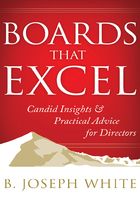
CHAPTER 3 Understand the Enterprise
What Is a Company (School, Hospital …)?
The first marketing course I took began with an assignment to read "A Note on the Worldwide Watch Industry," a dense document describing the global market for watches including market participants, products, price points, volumes, and distribution channels.
My section mates and I went to class expecting a discussion of the watch industry. That didn't happen. Instead, our professor, Steve Starr, faced the class and asked a simple question: "What is a watch?"
The answer turned out to be anything but simple.
A watch is a way of keeping time and doing so portably. As a young man, this was the only way I had ever thought about watches.
But, as various students pointed out, a watch can be many things, including a piece of jewelry, a fashion accessory, an expression of personal values and taste, a work of art, a collector's item, a store of value, a talisman, a gift with significance and meaning, a status symbol, a family heirloom, and more. "What is a watch?" turned out to be the best possible introduction to the subject of marketing.
There is a similar question that corporate directors should ask themselves: What is a company? And nonprofit directors should ask, "What is a hospital or university or school?" It is impossible to be an effective steward of an entity unless you deeply understand its character. Let me illustrate by focusing on what is a company?
The standard definition is that a company is a business firm or enterprise. This is true but not very useful. In my experience, a company is many things to many people. The deeper answer is rich, complex, and consequential for directors.
In the following sections, I describe what I think a company is and some implications for governance. In addition to being a business enterprise, a company is
• a legal entity
• an economic entity
• a human community
• a story
• a means as well as an end
• an open system